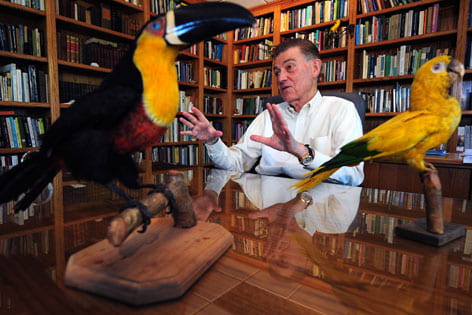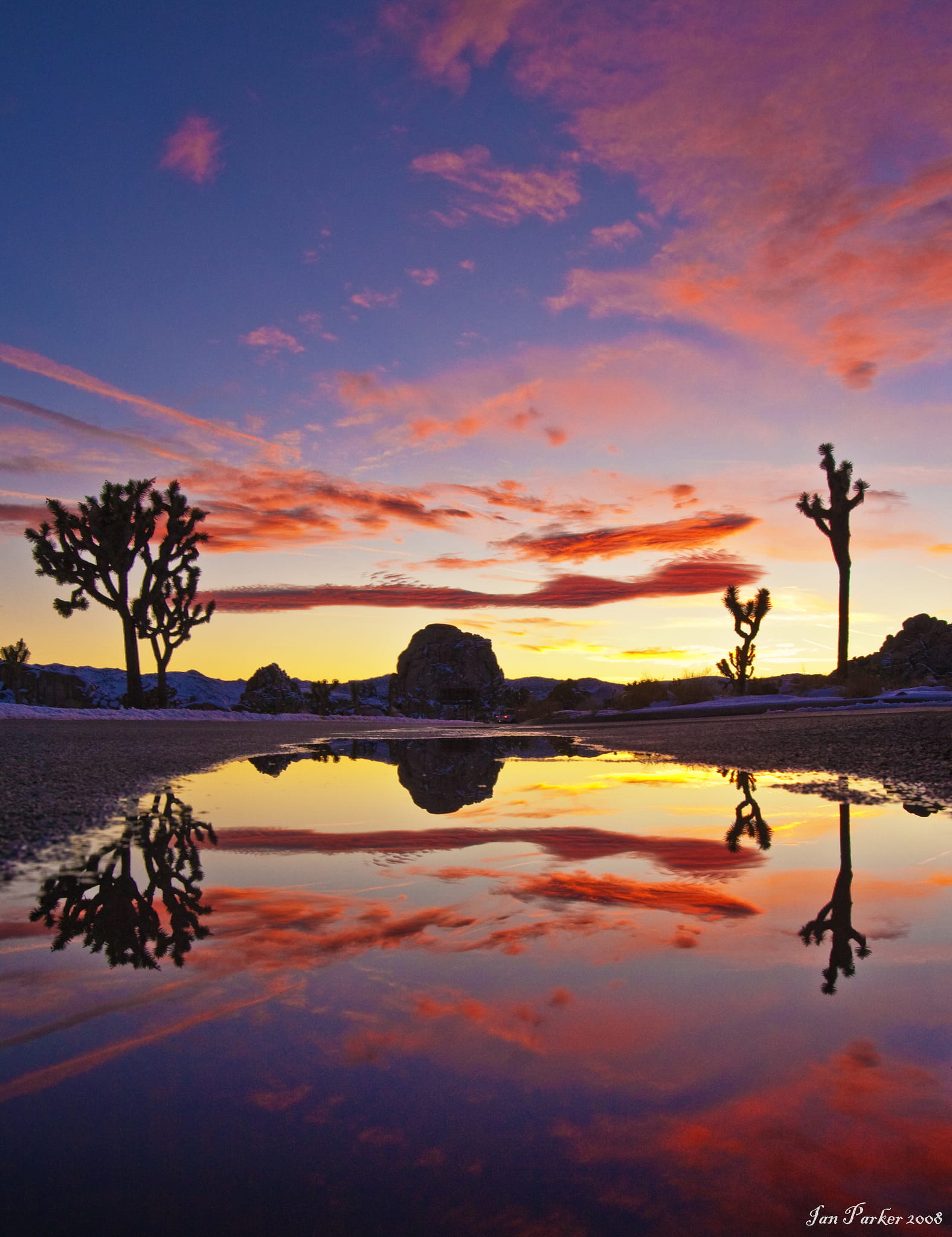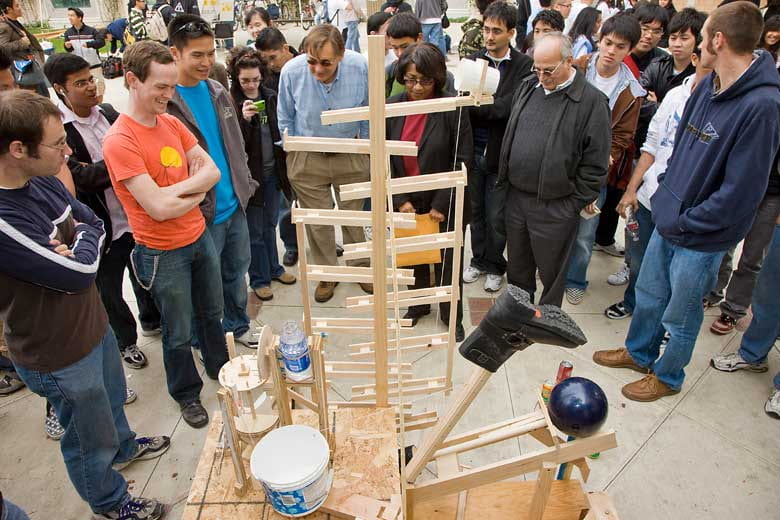UCI professor wins 2010 Templeton Prize
Francisco Ayala, UC Irvine professor of ecology & evolutionary biology, who has vigorously opposed the entanglement of science and religion while also calling for mutual respect between the two, has won the 2010 Templeton Prize.

Francisco Ayala, UC Irvine professor of ecology & evolutionary biology, who has vigorously opposed the entanglement of science and religion while also calling for mutual respect between the two, has won the 2010 Templeton Prize, awarded to a living person who has made an exceptional contribution to affirming life’s spiritual dimension.
Ayala, 76, the Donald Bren Professor of Biological Sciences at UCI whose groundbreaking research into parasitic protozoa may lead to cures for malaria and other diseases, has devoted more than 30 years to asserting that both science and faith are damaged when either invades the proper domain of the other. He has equated efforts to block religious intrusions into science with “the survival of rationality in this country.” To that end, in 1981 he served as an expert witness in a pivotal U.S. federal court challenge that led to the overturning of an Arkansas law that mandated the teaching of creationism alongside evolution. In 2001, George W. Bush awarded Ayala the National Medal of Science.
Even as he warns against religion’s intrusion into science, Ayala, a former Dominican priest, also champions faith as a unique and important window to understanding matters of purpose, values and the meaning of life. This respect for the rightful, if separate, roles of science and faith has allowed Ayala to consider questions such as, “Does scientific knowledge contradict religious belief?” and “Is morality derived from biological evolution?” that draw upon each discipline and may bring new insights that advance human endeavor.
In a statement, Ayala forcefully denied that science contradicts religion. “If they are properly understood,” he said, “they cannot be in contradiction because science and religion concern different matters, and each is essential to human understanding.” Referring to Picasso’s Guernica, he noted that while science can assess the painting’s massive dimensions and pigments, only a spiritual view imparts the horror of the subject matter. Together, he explained, these two separate analyses reveal the totality of the masterpiece.
The Templeton Prize was announced Thursday, March 25, at the National Academy of Sciences in Washington, D.C., by the John Templeton Foundation, which has awarded it since 1973. Valued at one million pounds sterling (about $1.51 million or €1.10 million), the Prize is the world’s largest annual award given to an individual and honors a living person who has made exceptional contributions to affirming life’s spiritual dimension. HRH Prince Philip, the Duke of Edinburgh, will award the Prize at a private ceremony at Buckingham Palace on May 5.
John M. Templeton Jr., M.D., president and chairman of the John Templeton Foundation, praised Ayala’s research, scholarship, development of new schools of thought, and innovative assessments on some of the most fundamental questions of life. His remarkable breadth and depth of analysis, focusing on genuine discovery, exemplify the design and purpose of the Prize program founded by his late father, Sir John Templeton. “Ayala’s clear voice in matters of science and faith echoes the foundation’s belief that evolution of the mind and truly open-minded inquiry can lead to real spiritual progress in the world,” Dr. Templeton said.
UCI Chancellor Michael Drake applauded the choice of Ayala as Templeton Prize winner. “Francisco Ayala’s thoughtful contributions to the science-religion debate, along with his groundbreaking research and its implications for world health, exemplify the highest level of intellectual discourse and excellence at UC Irvine,” he said. “No one is more deserving of this honor.”
Michael Gottfredson, UCI’s executive vice chancellor and provost, added, “Students and faculty at UC Irvine have been graced by Professor Ayala’s teaching and scholarship. We are pleased beyond measure that his contributions have been recognized in such a lasting and profound way.”
In nominating Ayala for the Prize, Ralph Cicerone, president of the National Academy of Sciences and UCI chancellor emeritus, recounted the broad influence of Ayala’s scientific teaching and writings, including more than 1,000 papers and 40 books, adding, “His publications show the power of science as a way of knowing and the significance and purpose of the world and human life, as well as matters concerning moral or religious values that transcend science.”
Ayala’s news conference reference to Picasso’s Guernica was more than simple metaphor. Born in Madrid in 1934, shortly before the Spanish Civil War unleashed its terror, he grew up within the smothering restrictions of the Franco era. Though his family was involved with business and finance, Ayala showed an interest in science that was cultivated by priests who taught him. In 1960 he, too, became a priest, but soon decided to leave the priesthood – and the intellectual repression of Franco’s Spain. He moved from Spain to New York in 1961 to attend Columbia University, despite virtually no working knowledge of English.
There he met Theodosius Dobzhansky, among the 20th century’s most distinguished geneticists and evolutionary biologists, who saw Ayala as a student with potential to lead the field’s next generation. Under Dobzhansky’s tutelage, he received his doctorate from Columbia in 1964 with a thesis that established that rates of evolution depend on the genetic variation of a species.
It was the first of many discoveries that placed Ayala among the pioneers of genetic research in the second half of the 20th century, including his proof that the parasites responsible for Chagas, an often fatal disease afflicting millions of people living in the tropics, reproduced not sexually but by cloning. This led to similar discoveries about the parasites that cause malaria and other tropical diseases, opening up new approaches to potential vaccines.
Ayala also developed highly accurate ways to read genetic clocks to determine the timing of precise steps in the evolution of a species over millions or even billions of years. Recently, he and colleagues determined that malaria was likely first transmitted from chimpanzees to humans as recently as 5,000 years ago, possibly through a single mosquito. In January he co-authored a paper establishing that gorillas and chimps now may serve as reservoirs for malaria parasites, so that even if a vaccine is developed, humans will always be vulnerable to re-infection.
Besides holding professorships in biology, philosophy, logic, and philosophy of biology (a field he helped establish), Ayala is also University Professor, the highest rank within the California university system and the only person with that title at UCI.
In 2007, Ayala wrote Darwin’s Gift to Science and Religion (Joseph Henry Press), a broad review of the proper context of science and religion in modern society. His new book, Am I a Monkey? Six Big Questions about Evolution, will be published by Johns Hopkins University Press in October.
In 1994, President Bill Clinton appointed Ayala to the U.S. President’s Committee of Advisors on Science and Technology. While president of the American Association for the Advancement of Science from 1993 to 1996, he developed the AAAS “Dialogue on Science, Ethics, and Religion.” He is a member of the National Academy of Sciences and a foreign member of the scientific academies of, among others, Spain, Russia, Italy, Mexico and Serbia.
Ayala has two children, Francisco José and Carlos Alberto. He is married to Dr. Hana Lostakova, an ecologist.
After moving to California in the 1970s, Ayala purchased a weekend property with a vineyard. Following several expansions, he now supplies major wineries with grapes from more than 2,400 acres of fields in San Joaquin and Sacramento counties.


